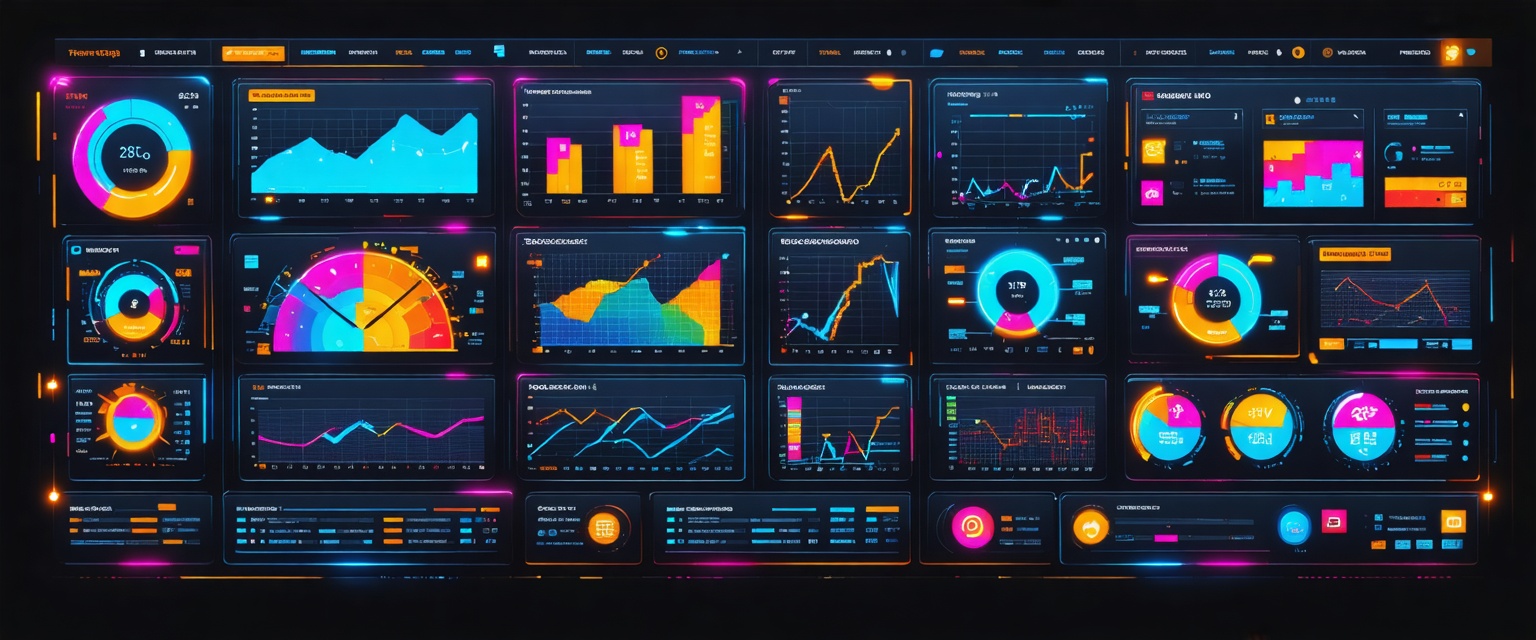Automate sourcing evaluations with AI in manufacturing. Streamline procurement decisions for greater efficiency and cost savings, ensuring competitive advantage.
Procurement directors in manufacturing struggle to evaluate supplier data spread across siloed systems, slowing down strategic sourcing. Legacy tools can’t keep up with fast-changing supply chains or complex vendor profiles.
Thanks to advances in Agentic AI, it’s now easier to automate sourcing evaluations and extract insights buried in fragmented data.
Datagrid’s data connectors pull this information together, helping teams act faster and more confidently. This article shows how AI agents streamline strategic sourcing for smarter procurement decisions.
What Strategic Sourcing Evaluation Entails in Manufacturing
Strategic sourcing evaluation in manufacturing involves systematically analyzing supplier capabilities, total cost models, and supply chain risks to align procurement with production goals. For procurement directors, this process is critical to maintaining competitive advantage and operational continuity.
In manufacturing contexts, several industry-specific factors make sourcing evaluation particularly vital:
- Raw material quality: Inconsistent materials lead to defects, recalls, and brand damage.
- Lead time reliability: Component delays halt production lines, causing costly downtime.
- Scalability: Suppliers must accommodate demand fluctuations, especially during peak periods.
For procurement directors, lagging behind in sourcing evaluations means risking production halts from insufficient supplies, cost overruns eroding profit margins, and compliance failures resulting in regulatory penalties.
To conduct effective strategic sourcing evaluations, manufacturing procurement teams must develop comprehensive supplier scorecards beyond price, implement total cost of ownership models, utilize advanced analytics, and establish cross-functional collaboration between procurement and production teams.
How Effective Sourcing Evaluation Drives Manufacturing Competitiveness
When you make informed sourcing decisions, you're not just selecting suppliers, you're shaping your company's future. Automating strategic sourcing evaluation directly impacts:
- Production continuity through reliable supplier selection.
- Cost control via optimized pricing and terms.
- Risk mitigation through thorough vendor vetting.
- Innovation acceleration by partnering with forward-thinking suppliers.
Poor sourcing decisions come with steep costs. Beyond production disruptions, manufacturers face inflated costs, regulatory non-compliance, and lost competitive advantage when sourcing evaluation falls short.
As a procurement director, insights from rigorous sourcing evaluations enable you to negotiate better contracts by understanding supplier cost structures, mitigate supply chain risks through diversification, align sourcing strategies with broader business objectives, and identify opportunities for collaborative innovation.
By prioritizing automated strategic sourcing evaluation, you position your organization to outperform competitors, adapt to market changes, and drive sustainable growth in an increasingly complex manufacturing environment.
Why Spreadsheets and Emails Fail Modern Procurement Teams
In manufacturing procurement, relying on spreadsheets and emails is like bringing a knife to a gunfight. These traditional tools simply can't handle the complexities and data volumes of modern strategic sourcing evaluation.
Inefficiencies in Manual Data Aggregation
Procurement teams waste countless hours manually collating data from disparate systems.
They spend time extracting supplier data from ERP systems and compiling information from multiple spreadsheets.
Missed Real-Time Risks and Opportunities
Static spreadsheets and delayed email communications mean procurement teams often miss critical real-time information.
Supplier financial instability goes undetected until it impacts the supply chain.
Geopolitical disruptions affecting material availability aren't recognized in time.
Market shifts providing cost-saving opportunities pass by unnoticed.
Outdated Cost Models and Market Intelligence
Spreadsheet-based cost models quickly become obsolete in dynamic manufacturing environments, failing to account for rapidly fluctuating tariffs, sudden energy price changes, and unexpected logistics delays.
Limited Collaboration and Version Control
Email-based communication creates significant challenges with multiple spreadsheet versions, lack of real-time collaboration, and important information buried in email threads.
These limitations result in miscommunication, delayed approvals, and inefficient supplier negotiations.
Inadequate Data Analysis Capabilities
Modern manufacturing procurement requires sophisticated data analysis that spreadsheets can't provide, including the inability to process large data volumes from multiple sources.
This analytical limitation hampers procurement teams' ability to make data-driven strategic decisions.
Compliance and Audit Trail Challenges
Relying on spreadsheets and emails creates significant compliance risks with difficulty maintaining clear audit trails and enforcing consistent procurement policies.
As procurement grows more complex, manufacturing teams need tools that handle big data, provide real-time insights, and facilitate collaborative decision-making, capabilities that traditional methods simply can't deliver.
How AI Agents Automate Strategic Sourcing Evaluation in Manufacturing
AI agents are transforming manufacturing strategic sourcing evaluation by automating complex processes and enhancing decision-making capabilities. These intelligent systems, encompassing various AI agent types, work across multiple dimensions of the procurement process.
Automated Data Aggregation and Analysis
AI agents automate information gathering and collect and integrate procurement data from disparate sources with remarkable efficiency, enabling data optimization with AI.
They analyze production schedules and historical consumption data to forecast requirements.
They identify seasonal trends and cyclical demands specific to manufacturing.
This automated approach allows manufacturers to maintain optimal inventory levels while reducing carrying costs and preventing stock outs that could halt production lines. Additionally, AI agents not only collect and integrate procurement data from disparate sources with remarkable efficiency but also help automate manufacturing efficiency throughout the production line.
Supplier Evaluation and Risk Assessment
AI excels at comprehensive supplier assessment by grading vendors based on historical performance and current market conditions.
It continuously monitors supplier metrics to identify deteriorating trends and detects potential compliance issues before they impact operations.
RFP Evaluation and Supplier Selection
AI has transformed proposal evaluation by automating RFQ evaluation, automatically checking responses to RFPs, automating proposal comparisons, and scoring them on predefined metrics.
It analyzes pricing structures to identify the most favorable terms and compares technical specifications against manufacturing requirements.
For manufacturing procurement, this means more consistent evaluation of technical details directly impacting production quality.
Predictive Analytics for Demand Forecasting
AI agents leverage machine learning to analyze historical purchasing data, production schedules, and market trends, enabling accurate sales forecasting, improving capacity planning in manufacturing, and helping maintain optimal inventory levels across facilities.
Cost Optimization and Scenario Modeling
AI-powered systems perform complex cost analyses and scenario modeling at unprecedented speeds, identifying cost-saving opportunities across categories.
These AI systems don't replace procurement professionals but enhance their capabilities by automating routine tasks and providing deeper insights. This allows procurement teams to focus on strategic decision-making and relationship management rather than data processing.
Datagrid for Manufacturing Professionals
Manufacturing leaders face complex challenges managing production data, supply chain documentation, and quality control information across multiple systems. Datagrid's AI-powered platform offers specialized solutions to streamline your operations:
Supply Chain Documentation Management
Process thousands of supplier specifications, bills of materials, and compliance certificates simultaneously. Datagrid extracts critical information to maintain visibility across your entire supply network, reducing manual data entry and potential errors.
Quality Control Automation
Analyze production data, testing reports, and defect documentation to identify patterns, enhance data quality, and predict quality issues before they escalate. Datagrid generates targeted improvement recommendations, helping you maintain high standards and reduce waste.
Regulatory Compliance Support
Deploy AI for compliance monitoring that continuously monitors changing industry regulations and automatically cross-references your documentation. Quickly identify compliance gaps requiring attention, ensuring you stay ahead of regulatory requirements.
Equipment Maintenance Optimization
Extract insights from maintenance logs, equipment manuals, and performance data to predict maintenance needs. Reduce downtime, extend asset lifecycles, and optimize your maintenance schedules based on data-driven recommendations.
Production Workflow Analysis
Process production reports across multiple facilities to identify bottlenecks and efficiency opportunities. Datagrid helps you implement best practices throughout your organization, boosting overall productivity.
Product Specification Management
Automatically extract and organize technical specifications from various document formats. Enable quick comparisons between design requirements and production capabilities, streamlining your product development process.
Supplier Performance Evaluation
Analyze vendor documentation, delivery records, and quality reports to generate comprehensive supplier scorecards. Identify strategic sourcing opportunities and make data-driven decisions about your supplier relationships.
By integrating Datagrid into your manufacturing operations, your team can focus on production innovation and process improvement. Let AI handle the document-intensive tasks that traditionally create information silos and operational inefficiencies.
Simplify Manufacturing Tasks with Datagrid's Agentic AI
Don't let data complexity slow down your team. Datagrid's AI-powered platform is designed specifically for teams who want to:
- Automate tedious data tasks
- Reduce manual processing time
- Gain actionable insights instantly
- Improve team productivity
See how Datagrid can help you increase process efficiency.




.jpeg)








